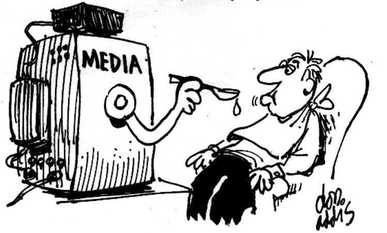The recent debate over two controversial advertisements highlighted the need for media literacy training.While the industry’s self-regulatory group (Advertising Standards Authority of Singapore - ASAS) acknowledged indecency and called for it’s removal, it was ironically some man-in-the-street who feel otherwise. Studies show that only 8% of advertising messages are processed by our brains, with the remainder influencing us in ways we do not even begin to realise. That means that 92% of advertising messaging influence us without our awareness!
Women take in unrealistic ideals of beauty and slimness; body parts (especially of women) are objectified and influence attitudes towards sex and violence. Our expectations, attitudes towards ourselves, others and relationships are but some of the domains affected.
An advertisement like the ones in question uses sex to sell – the message has little relevance to the product/brand.
Media literacy is especially important in this era where we are bombarded with media messages. We need to learn how to access, analyze, evaluate and create media messages.
Kingmaker conducts quality programmes to teach media literacy.
- 670 MOE International scholars learned how to interpret different and sometimes conflicting news messages of the same subject.
- 270 Guangyang Secondary students learned the subtle effects of “sexy media” and how computer games are more than mere entertainment.
All these involve the ability to ask right questions about the source and intent of the messages. Kingmaker teaches a framework for interpretation and uses relevant case studies to educate media-savvy youths.


